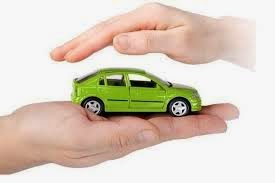Car donation is a noble gesture since it can make a difference in
someone's life. Most Catholic charity houses depend solely on
donations. Many people donate money or clothes to charities but donating
a car is something that is rapidly picking up. Donating a car allows
you to get rid of an old car-hassle free and can also provide certain
savings on your tax forms.
Car donations made to some Catholic charities are tax deductible. You can claim the car's fair market value if the car is worth less than $500 or if it is in good working condition. You can claim deduction equal to the actual sale price of the car is the car is worth more than $500. The charity house should be a qualified, 501(c)3 IRS registered charity since only such programs are eligible for tax deductions. Information about such charity programs can be obtained from the IRS website or in the Publication 78 that is available at most public libraries.
Determine the value of the car meant for donation. This can be done by checking the blue book value. Take the condition of the car into consideration while determining its value. Most charity organizations take donated cars for free, but there are some which charge certain fees. Make sure you have the title for the car.
These days, Catholic charity car donation has become very easy with online donation forms, easier processing and special services from the charity house like vehicle pick-up and towing. The forms can be filled online and all correspondence can be made through phone or e-mail. Once the car is taken, you would receive a receipt, a letter about the donation and a form 8283 from the IRS for "Noncash Charitable Contributions".
Car charity organizations can be located online over the Internet or they can also be found in the yellow pages or through advertisements.
Car donations made to some Catholic charities are tax deductible. You can claim the car's fair market value if the car is worth less than $500 or if it is in good working condition. You can claim deduction equal to the actual sale price of the car is the car is worth more than $500. The charity house should be a qualified, 501(c)3 IRS registered charity since only such programs are eligible for tax deductions. Information about such charity programs can be obtained from the IRS website or in the Publication 78 that is available at most public libraries.
Determine the value of the car meant for donation. This can be done by checking the blue book value. Take the condition of the car into consideration while determining its value. Most charity organizations take donated cars for free, but there are some which charge certain fees. Make sure you have the title for the car.
These days, Catholic charity car donation has become very easy with online donation forms, easier processing and special services from the charity house like vehicle pick-up and towing. The forms can be filled online and all correspondence can be made through phone or e-mail. Once the car is taken, you would receive a receipt, a letter about the donation and a form 8283 from the IRS for "Noncash Charitable Contributions".
Car charity organizations can be located online over the Internet or they can also be found in the yellow pages or through advertisements.





